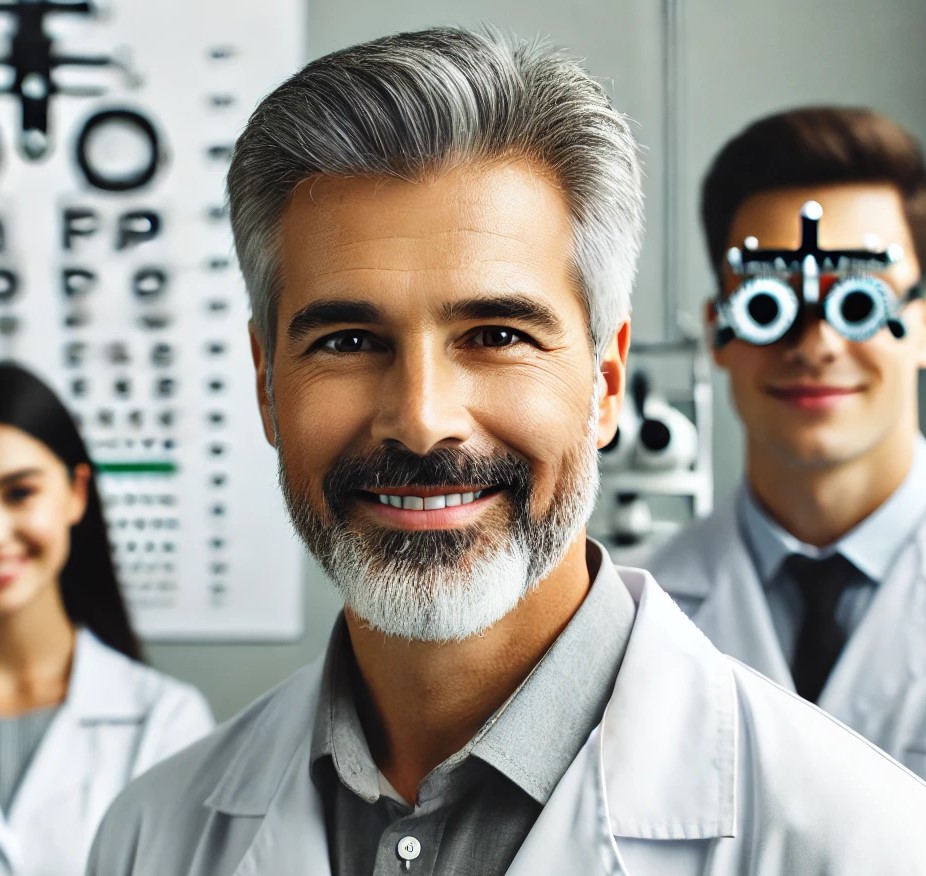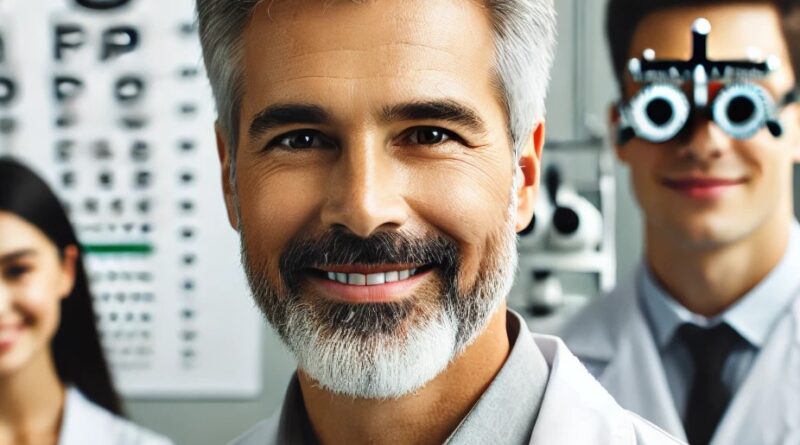“Your Vision, Our Priority: Skilled Ophthalmologists for Optimal Eye Health”

The importance of maintaining good eye health cannot be overstated. Regular check-ups with an ophthalmologist can ensure your vision remains sharp. Eyes are vital for performing daily tasks and enjoying life’s beauty. Neglecting eye care can lead to complications. Expert guidance and treatment from a trusted specialist can prevent serious issues.
An ophthalmologist is a medical doctor specializing in diagnosing and treating eye conditions. Their role is essential in preserving long-term vision. From routine check-ups to advanced surgeries, they address a wide range of issues. Understanding their expertise helps you make informed decisions about your eye health.
What Does an Ophthalmologist Do?
An ophthalmologist provides comprehensive care for various eye conditions. Their services include eye exams, prescription glasses, and diagnosing diseases. They also perform surgeries like cataract removal and laser treatments.
Unlike optometrists, they are trained medical doctors. They can treat complex eye issues requiring specialized care. Consulting an ophthalmologist is essential for conditions like glaucoma, retinal detachment, and diabetic eye disease.
Signs You Need an Ophthalmologist
Sometimes, people ignore symptoms that require attention. Blurred vision or frequent headaches may signal underlying issues. Sudden loss of vision or flashes of light in your sight should never be ignored.
Persistent eye discomfort or redness also calls for immediate care. These symptoms might indicate infections or chronic conditions. Seeing an ophthalmologist early can prevent complications.
Routine eye exams are equally important even if you feel fine. They can help detect problems like macular degeneration in early stages. Prevention is always better than treatment when it comes to your eyes.
Regular Eye Exams: Why They Matter
Routine visits to an ophthalmologist are vital for maintaining good vision. These exams detect potential issues before symptoms appear. Early diagnosis of conditions like glaucoma can save your eyesight.
Comprehensive exams check visual acuity and eye pressure. They also assess the health of your retina and optic nerve. Such tests provide a complete picture of your eye health.
Children and older adults should especially prioritize regular check-ups. These groups are more prone to vision problems. Prevention through early intervention ensures lifelong eye health.
Common Eye Conditions Treated by Ophthalmologists
An ophthalmologist treats various eye diseases, ensuring better vision. Here are some common conditions they address:
- Cataracts: Clouding of the eye lens, leading to blurry vision. Surgery is often required to restore clarity.
- Glaucoma: A condition that damages the optic nerve due to high pressure. Early treatment prevents irreversible vision loss.
- Macular Degeneration: Age-related condition causing central vision loss. Regular monitoring helps slow progression.
- Dry Eye Syndrome: Chronic dryness and irritation requiring specialized care. Treatments include medications and lifestyle changes.
- Diabetic Retinopathy: Vision problems caused by diabetes. Proper management prevents severe complications.
How to Choose the Right Ophthalmologist
Selecting the right ophthalmologist ensures effective treatment. Look for someone with experience and specialized training. Board certification indicates they meet high standards of care.
Referrals from trusted sources can help you find a reliable doctor. Reading reviews or patient testimonials provides insight into their services. Always choose an ophthalmologist who communicates clearly.
Accessibility is another key factor. Select a specialist located conveniently near you. This ensures you can visit them easily for follow-ups. Building trust with your ophthalmologist is essential for long-term care.
Advanced Technology in ophthalmologist Eye Care
Modern technology has revolutionized eye treatments. An experienced ophthalmologist uses advanced tools for accurate diagnosis. These innovations improve outcomes and reduce recovery times.
For example, laser-assisted surgeries are now common for cataracts. They offer precision and faster healing. Imaging technologies like OCT provide detailed views of the retina.
Regular advancements ensure that eye care continues to improve. Patients benefit from safer procedures and better results. Consulting a specialist who uses cutting-edge techniques ensures optimal care.
Preventing Eye Problems: Simple Tips
Maintaining healthy eyes requires consistent effort. Regular visits to an ophthalmologist are crucial. However, everyday habits also play a significant role.
- Protect your eyes from harmful UV rays by wearing sunglasses.
- Take breaks during screen time to reduce eye strain.
- Follow a balanced diet rich in vitamins like A, C, and E.
- Keep your hands clean to avoid eye infections.
- Stay hydrated to maintain tear production.
These practices help prevent common problems like dry eyes and irritation. Combining prevention with professional care ensures lifelong vision.
Pediatric Eye Care: A Crucial Need
Children need specialized attention when it comes to eye health. A pediatric ophthalmologist can address developmental issues early. Conditions like lazy eye and squint require timely intervention.
Vision screening for children should begin at an early age. Detecting issues early ensures proper development. Poor vision can affect academic performance and confidence.
Parents should encourage regular eye exams as part of routine health care. Seeking professional guidance prevents potential vision problems. A child’s bright future starts with clear vision.
Senior Eye Care: Unique Challenges
Aging brings unique challenges to eye health. Seniors are more prone to conditions like cataracts and glaucoma. Regular visits to an ophthalmologist help manage these issues effectively.
Timely treatment prevents age-related vision loss. Specialized care ensures that seniors maintain independence. Lifestyle adjustments and assistive devices can improve their quality of life.
Early detection of conditions like macular degeneration ensures better management. Seniors should prioritize their eye health for overall well-being.
The Role of Lifestyle in Eye Health
Your lifestyle choices directly impact your vision. Smoking, poor diet, and lack of sleep can harm your eyes. Visiting an ophthalmologist helps identify issues caused by these habits.
Quitting smoking reduces the risk of macular degeneration. A balanced diet with leafy greens promotes healthy eyes. Adequate sleep allows your eyes to recover and stay refreshed.
Regular exercise improves circulation, benefiting overall eye health. Adopting a healthier lifestyle complements professional care. Small changes today can protect your vision for years.
Why Early Diagnosis Matters
Delaying treatment for eye problems can lead to complications. An ophthalmologist ensures timely diagnosis and intervention. Early detection of conditions like diabetic retinopathy prevents severe damage.
Annual check-ups are essential, even without noticeable symptoms. Many conditions progress silently, causing irreversible harm. Catching them early improves treatment success rates.
Don’t wait for symptoms to worsen. Schedule regular appointments and take proactive steps. Protecting your vision should always be a priority.
Conclusion
Your vision deserves the best care possible. An experienced ophthalmologist can provide the expertise you need. Regular check-ups, early diagnosis, and healthy habits ensure optimal eye health.
Taking proactive steps today protects your vision for the future. Consult a trusted specialist for personalized care. Your eyes are a window to the world—keep them healthy for a brighter tomorrow.
Also Read This: – https://thehealthnews24.com/2024/12/16/heart-bypass-surgery-cabg-cost-in-india/




